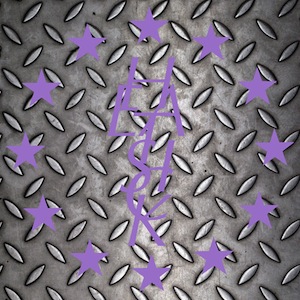Heatsick Re-Engineering
As one half of niche noise act Birds of Delay, Steven Warwick coaxed waves of […]

As one half of niche noise act Birds of Delay, Steven Warwick coaxed waves of psychedelic drone from a minimal, casio-and-pedal-based set-up. He’s since moved onto greater recognition with his solo Heatsick project, turning heads with a series of inventive releases for Berlin-based label PAN over the last two years that traded Birds of Delay’s dense textures for refreshingly off-the-cuff dance beats, once again made with his trusty casio. Warwick’s latest, a second full-length release for PAN, is perhaps his most eloquently conceptualized record yet. Described in the press materials as a “cybernetic poem,” Re-Engineering is a brittle and surprisingly lithe record that updates the now-historic sonic futurisms of post-punk, disco, and synth-pop to comment on our current, hyper-modern era. It is also incredibly wry; Re-Engineering‘s track titles are heavy on puns and wordplay, and include such gems as “E-scape” and “Clear Chanel,” while the title track features an automaton-like voice reading a buzzword-heavy poem. Moreso than Warwick’s previous, often lo-fi releases as Heatsick, many of Re-Engineering‘s 11 tracks are surprisingly lush and make clearer the dance-music influences that have always been latent in the project; however, despite these changes, textured, improvisational psychedelia continues to help define the work.
The aforementioned titled track pairs a tumbling, lopsided disco groove with a Situationists-referencing spoken-word poem, and the result recalls the probing political pop of the post-punk era. While the track’s spoken-word elements could easily come across as hyper-contemporary posturing, in the context of the tune’s dub inflections and reverb-soaked guitar, it winds up as more of a knowing pastiche. “E-Scape” offers thick, textured, Krautrock-influenced grooves, while “Clear Chanel” similarly conjures up a hypnotic fantasy space with its sweeping keyboard lines and limber bass. Still, perhaps the most noticeable aspect of Re-Engineering, in comparison to previous Heatsick releases, is its increasingly functional gestures towards the dancefloor. Where Warwick’s previous nods to disco were abstract, the funk-inflected “Speculative”—one of the record’s clear highlights—features a propulsive groove alongside a skittish guitar and saxophone interplay that recalls Malcolm McLaren’s early-’80s solo material. The track is also the only one on album to feature vocals from Warwick himself, and his deadpan manner perfectly complements the barely contained irony of the tune’s awkward grooves. Similarly, the loose, funky synth-pop of “Dial Again” is reminiscent of the aloof, tongue-in-cheek mannerisms of Talking Heads or Grace Jones, while “Apre?s Moi, Le De?luge!” has a shuddering, early-Chicago-house rawness, and “Emerge” trades on nostalgic rave pianos.
There is little doubt that Re-Engineering is an album highly indebted to the past—just about every gesture refers back to the musical ferment of the post-punk era. However, Warwick achieves the remarkable feat of mining this fertile period for its contemporary relevancy, highlighting the connections between the cynical playfulness and dystopian future-gazing of both that time period and the present. At a time when dance music’s past is often treated with elegiac reverence, the fact that Re-Engineering takes a clever, witty, and irreverent approach to its influences feels bracing rather than tired.

